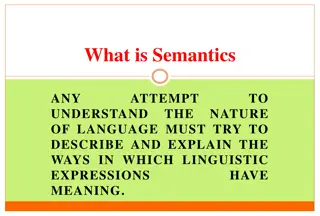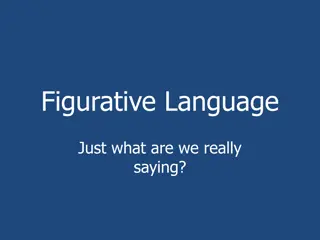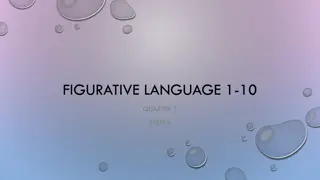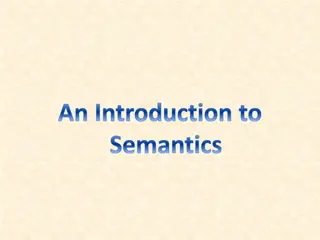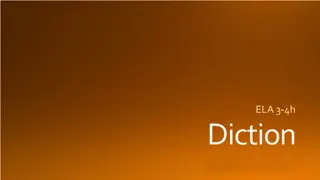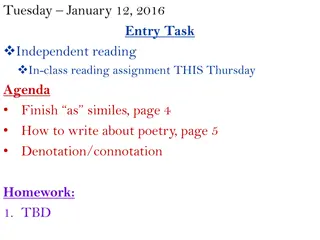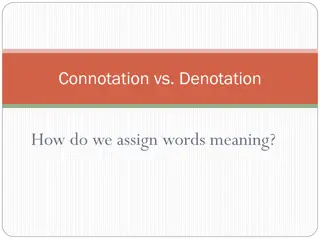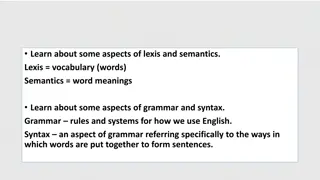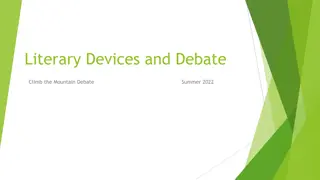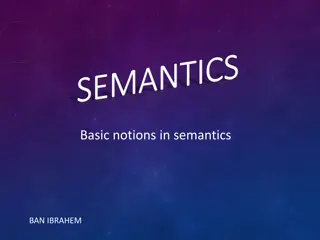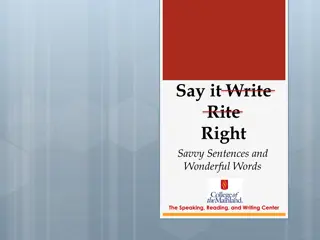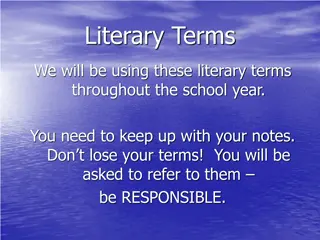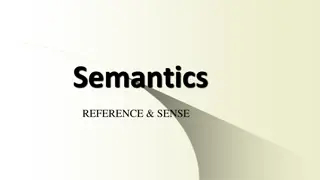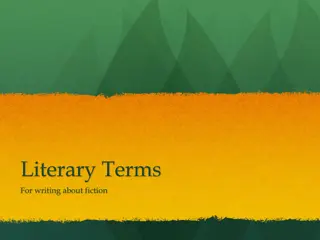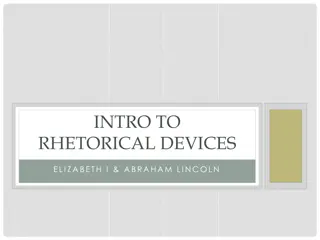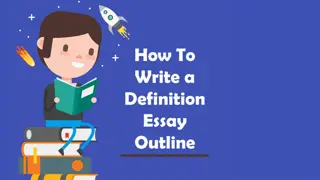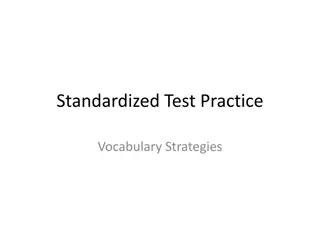Connotation and Denotation in Language
Learn about the difference between connotation and denotation in language, where connotation refers to the emotional meaning of a word and denotation to the literal definition. Discover how words can have different connotations based on personal, cultural, or universal experiences, and consider examples to grasp the subtle nuances in language.
Download Presentation

Please find below an Image/Link to download the presentation.
The content on the website is provided AS IS for your information and personal use only. It may not be sold, licensed, or shared on other websites without obtaining consent from the author.If you encounter any issues during the download, it is possible that the publisher has removed the file from their server.
You are allowed to download the files provided on this website for personal or commercial use, subject to the condition that they are used lawfully. All files are the property of their respective owners.
The content on the website is provided AS IS for your information and personal use only. It may not be sold, licensed, or shared on other websites without obtaining consent from the author.
E N D
Presentation Transcript
Connotation and Denotation Symbol: Something that has meaning on its own but can stand for something else.
Connotation: The emotional meaning and connections a word carries. What does the word make you think about? In what kinds of situations do you use the word? This is connotation!
Denotation: The literal definition of the word lacking any emotional connections Think dictionary definition This is denotation!
SO WHATS THE DIFFERENCE? Think of a birthday cake: Denotation: a pastry made of flour and sugar baked at 350 degrees Connotation: parties, little kids, happiness, family gatherings
Connotations are: A. Private or personal based on personal experiences. B. Group/cultural/generation based on group/ culture s experiences. C. General/universal held by most or all people.
CONSIDER the differences Odor vs. fragrance A smart man vs. a wise guy Aged vs. old Brainy vs intelligent
Which would you rather be called? Spoiled or indulged? Weird or eccentric? Intelligent or brainy?
HINT: Consider synonyms for the word/phrase in question to decide if the word/phrase used has a positive or negative connotation or what degree of intensity it has.
CONNOTATION is generally classified as positive or negative at first. From there, decide what kind of positive or negative emotion or positive or negative emotion or sensation or situation is sensation or situation is suggested suggested.

 undefined
undefined





















